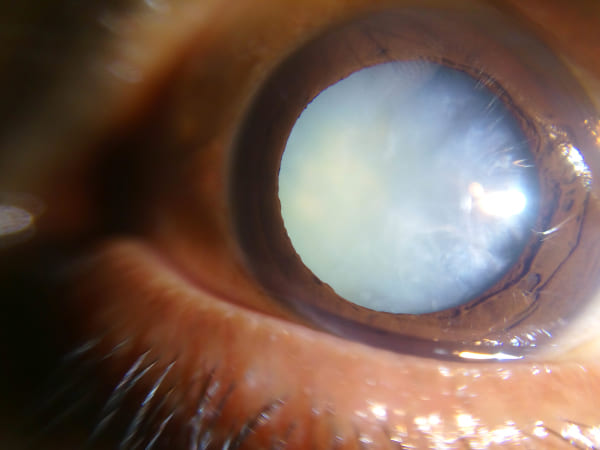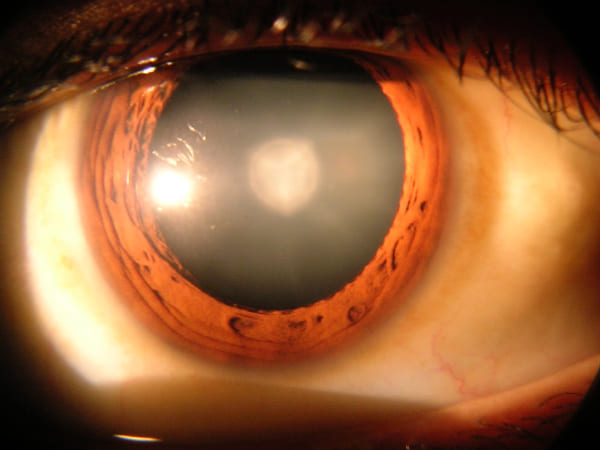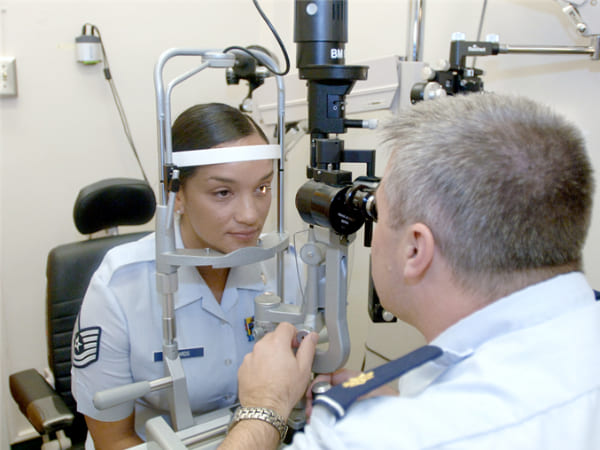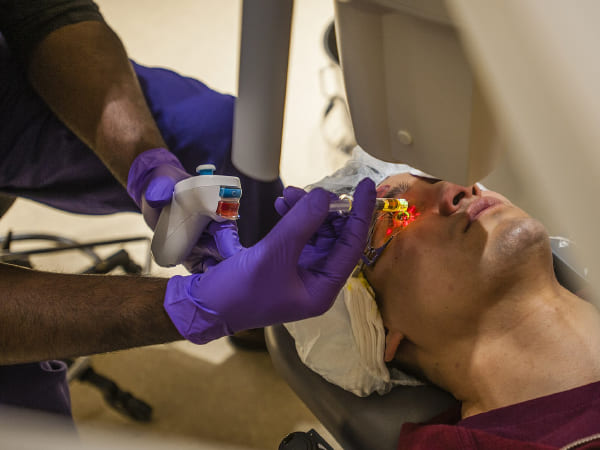
What Causes Cataracts?
• Genetic – Family history of cataracts can increase the risk of you developing a cataract [2].
• Protein breakdown – As you age, the protein in the lens undergo various changes and these changes increase in the presence of oxidative, osmotic or other stresses which have been linked to cataract formation [2].
• Diabetes – Increase in glycated haemoglobin (HbA1c) levels raises the risk of nuclear and cortical cataracts [3].
• Gender – Women have a higher risk of developing cataract than men [4]
• Smoking – Cigarette smoking increases the risk of nuclear cataracts [5].
• Ultraviolet radiation – Exposure to intense ultraviolet (UV) radiation, both UV A and UV B elevates the risk of cataract formation [6].
• Trauma – A blunt or penetrating eye trauma injury or a foreign object entering the eye causes cataracts.
Other causes of cataracts are malnutrition, poor living conditions, eye surgery and long-term use of certain medications such as steroids.
 11 Best Home Remedies For Cataract
11 Best Home Remedies For Cataract

Types Of Cataracts
1. Nuclear cataract – It forms in the lens nucleus (centre of the lens) and affects the ability to see distant objects. As this type of cataract progresses slowly, the lens of the eye becomes yellow and cloudy.
2. Cortical cataract – This type of cataract affects the edges of the lens and it starts as a whitish, wedge-shaped streak on the outer edge of the lens.
3. Posterior subcapsular cataract -This type of cataract is most commonly seen in younger people. Posterior subcapsular cataract affects the back of the lens and it interferes with the ability of the eye to focus on near objects [7].
As a person ages, any one type or a combination of these types of cataracts can develop over time.

Risk Factors Of Cataracts
• Increase in age
• Smoking
• Diabetes
• Exposure to UV rays
• Previous eye injury
• Family history of cataracts
• Obesity [8]
• Drinking excessive alcohol
READ RELATED: 7 Best New Costco Snacks To Try in 2023, According to Members
• High blood pressure [9]
 7 Best Juices To Protect Your Eyes
7 Best Juices To Protect Your Eyes

Diagnosis Of Cataracts
The ophthalmologist will first ask you about your symptoms and your medical history. Then eye tests such as slit lamp examination, visual acuity test and retinal exam are performed to diagnose cataracts.

Treatment Of Cataracts
• Eye glasses – A new prescription of eye glasses is given to you to help you see clearly if cataract is detected early.
• Cataract surgery – It is the most effective treatment for cataracts. The surgery is done by removing the clouded lens and replacing it with a clear, artificial lens called the intraocular lens. This intraocular lens is placed in the same place as your natural lens, which remains as a permanent part of your eye. According to the National Eye Institute, cataract surgery is safe and nine out of ten people who undergo this surgery can see clearly afterwards.

Prevention Of Cataracts
• Wear sunglasses to protect your eyes from the sun’s glares.
• Quit smoking.
• Maintain a healthy weight.
• Eat fruits and vegetables rich in antioxidants.
• Use bright lamps at home or work.
• Keep your medical conditions in check if you have any.
• Go for regular eye check-ups.
Common FAQs
Q. How fast do cataracts grow?
A. Most age-related cataracts can progress slowly over a period of years.
Q. What happens if cataracts are left untreated?
A. If cataracts are left untreated, they will continue to worsen over time and may lead to total blindness.
Q. How painful is cataract surgery?
A. Cataract surgery isn’t painful. A topical anaesthesia is used to numb the eye.
Q. Is it better to have cataract surgery early?
A. Yes, it is safer to remove a cataract sooner because if the cataract progresses, it can be difficult to remove.
Source: boldsky blog










